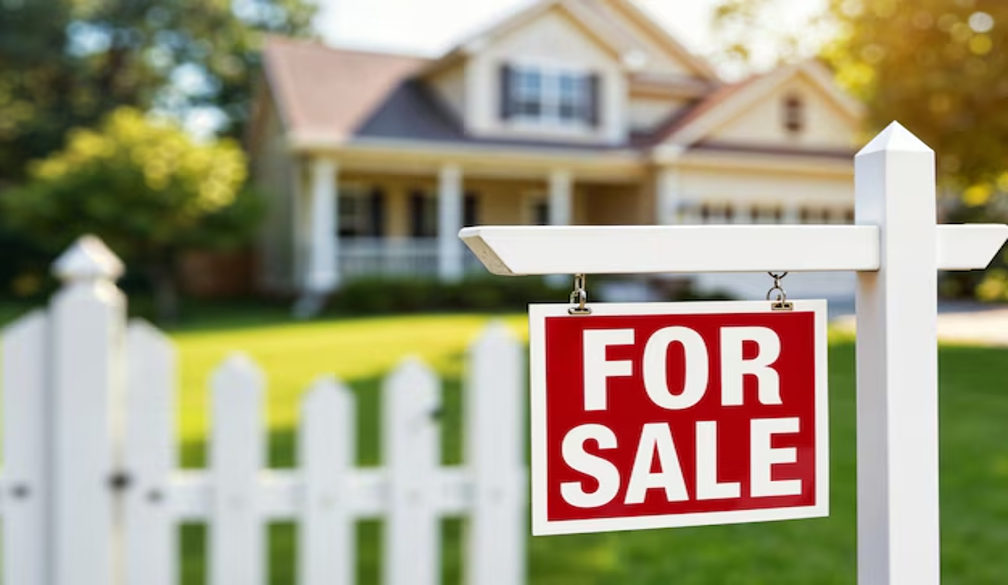Can You Sell Your House Privately in Queensland? Here’s How

Selling a house privately in Queensland is entirely possible and can be a cost-effective alternative to using a real estate agent. While agents provide valuable expertise, their commissions and fees can take a significant portion of your sale proceeds. By handling the sale yourself, you can save thousands of dollars, but it requires careful planning, knowledge of the legal requirements, and strong negotiation skills.
Knowing the Private House Sales in Queensland
A private sale means selling your property without the assistance of a real estate agent. This process allows you to set your price, market your property, and negotiate directly with buyers. If you're wondering how to sell your house privately in QLD, it's possible with the right steps. While it can seem daunting, many homeowners in Queensland successfully sell their properties privately by following the right steps.
The key advantages of selling your house privately include:
- Saving on agent commissions – Real estate agents typically charge commissions ranging from 2% to 3% of the final sale price.
- Full control over the process – You decide on pricing, marketing strategies, and negotiations.
- Direct communication with buyers – This can streamline the sales process and help you understand buyer expectations.
However, there are challenges, such as pricing your home accurately, handling negotiations, and ensuring compliance with legal obligations.
Steps to Selling Your House Privately in Queensland
1. Research the Market and Set a Competitive Price
The first step in selling your home privately is determining an appropriate price. Research recent sales in your suburb, analyse similar properties and consider hiring a licensed valuer for an independent appraisal. Overpricing can deter buyers, while underpricing could mean losing potential profits.
2. Prepare Your Property for Sale
Presentation is key in attracting potential buyers. Ensure your home is clean, decluttered, and well-maintained. Minor renovations, such as repainting walls or fixing small defects, can enhance your home’s appeal. Professional photography can also make a significant difference in attracting buyers online.
3. Market Your Property Effectively
Without an agent, you’ll need to take charge of marketing your property. Listing your home on platforms like realestate.com.au and domain.com.au requires access through third-party services, but there are alternative websites like Gumtree and Facebook Marketplace where you can advertise for free. Additionally, you can promote your property through:
- Social media marketing
- Local newspaper ads
- Online real estate forums
- Signage in front of your property
A well-crafted listing with high-quality photos and a compelling description can help your property stand out.
4. Conduct Open Homes and Private Inspections
Once inquiries start coming in, schedule viewings for potential buyers. Be prepared to answer questions about the property, local amenities, and any features that make your home unique. Hosting open homes can also attract multiple buyers at once, increasing interest and competition.
5. Negotiate the Sale
Buyers may submit offers lower than your asking price, so it’s crucial to be prepared for negotiations. Knowing your bottom line and understanding market trends can help you make informed decisions. Ensure that all verbal agreements are followed up in writing to avoid any misunderstandings.
6. Draft a Contract of Sale
In Queensland, a Contract of Sale is legally required for property transactions. This document must comply with Queensland law and include details such as:
- Purchase price
- Deposit amount
- Settlement period
- Special conditions (if any)
It’s recommended to have a solicitor or conveyancer prepare this contract to ensure compliance with all legal requirements.
7. Manage the Conveyancing Process
Conveyancing involves transferring the legal ownership of your property to the buyer, a process that can be made smoother with the help of conveyancing lawyers sydney offers. While you can handle some aspects of the sale yourself, engaging a professional conveyancer or solicitor is advisable to manage the paperwork, title transfer, and any outstanding obligations.
8. Finalise the Sale and Settlement
Once all contractual conditions are met, the settlement process begins. On the agreed settlement date, the buyer’s lender will transfer funds, and the property title will be legally transferred to the new owner. Ensure that all necessary documents are signed and any remaining utility bills or council rates are settled.
Legal Considerations and Risks
While selling privately can save money, it also carries risks. Some key legal considerations include:
- Disclosure requirements – Sellers must disclose any known property defects to buyers.
- Cooling-off period – In Queensland, buyers have a five-day cooling-off period after signing the contract.
- Deposit handling – Deposits must be held in a trust account until settlement.
Failure to comply with legal obligations can lead to delays, penalties, or even cancellation of the sale. Seeking legal advice before proceeding is highly recommended.
Is Selling Privately Right for You?
Selling a house privately in Queensland can be a rewarding experience for those willing to invest the time and effort. If you have strong communication and negotiation skills, as well as a good understanding of the property market, handling the sale yourself can result in significant savings. However, if you’re unfamiliar with the sales process or uncomfortable managing legal documents, hiring a professional might be a safer option.
Ultimately, success in private property sales comes down to preparation, marketing, and meeting all legal requirements. By following these steps, you can navigate the process with confidence and achieve the best possible outcome for your home sale.





















